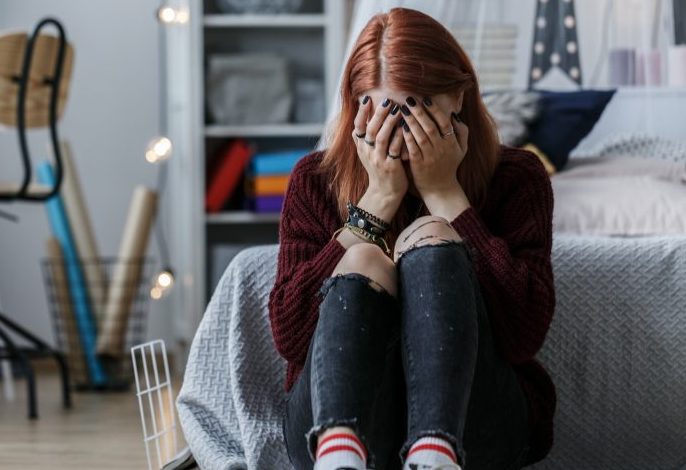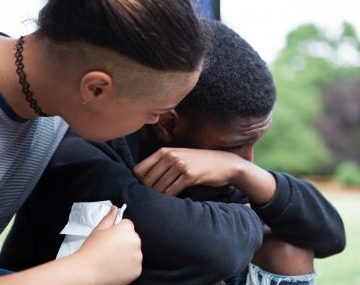Sexual Assault
Sexual assault is incredibly serious, and can have a major impact on survivors’ lives.
What is sexual assault?
Sexual assault is any sexual touch or act that’s performed without explicit consent. Consent is agreeing to a specific sexual activity. Sexual assault includes:
- Touching, fondling or grabbing someone in a sexual way
- Pressuring, threatening or forcing someone to be sexual. This includes: kissing, performing oral sex, penetrating someone’s body, or having oral or manual sex performed on them.
- Rape: penetrating the victim without consent, or making the victim penetrate the assaulter. This includes penetration of the mouth, vagina or anus by fingers, an object or a penis.
- Attempted rape
- Any sexual experience that wasn’t explicitly agreed to. For example, it would be sexual assault if two partners agreed to have sex with a condom, and then one of them took the condom off without the other knowing. This is because consenting to sex with a condom is not the same as consenting to sex without a condom.
- When someone exposes their genitals in public or to someone else without consent
- When someone masturbates or touches their own genitals in public
- Sending unwanted sexual messages, photos or videos
What else should I know about sexual assault?
- Sexual assault is never the victim’s fault.
- Anyone (including people of all genders and sexual orientations) can be sexually assaulted.
- Anyone (including people of all genders and sexual orientations) can commit sexual assault.
- Strangers, romantic partners, friends, community leaders and even family members can commit sexual assault. It’s actually more common for victims to know their assaulter than for them not to.
- Sexual assault doesn’t have to involve physical force. Using threats, pressure or coercion is also assault.
- Just because someone didn’t fight back or say “no” doesn’t mean that it wasn’t sexual assault. Everyone deserves to control what they do with their bodies. Silence is not consent.
- It doesn’t matter if the victim went home with their assaulter, flirted with them, “led them on,” or has had sex with them before. Consent is specific, and can be taken back at any time. Learn more about consent.
- Sometimes, people cannot consent. For example, if someone has been drinking or doing drugs, or is asleep, passed out, sick, or has certain mental disabilities they cannot consent. If someone is very young, they also cannot consent.
- Victims may “freeze” during an assault and feel like they cannot move. This is a common and normal response to trauma.
What should I do if I’ve been sexually assaulted?
If you’ve been sexually assaulted, you are not alone. Remember that what happened was not your fault.
First, make sure you are safe. If you are in immediate danger, call 911. Consider going to a clinic, hospital or a local rape crisis center. They can help prevent pregnancy and HIV, and test you for sexually transmitted infections (STIs). They can also connect you to counseling and support services. If you want them to, they can do a sexual assault forensic exam (sometimes called a “rape kit”).
Talk to someone you trust. If you feel comfortable, talk about what happened with a parent or other family member, guidance counselor, teacher or other trusted adult. Speaking with a friend you trust may also be a good idea. It’s up to you how and when you tell them. Do what feels easiest and best for you.
It may feel easier to talk to someone anonymously. You can call the National Sexual Assault Hotline at 1-800-656-4673 or chat online with a trained staff member.
You may be feeling overwhelmed, confused, angry, out of control, anxious, numb or other emotions. Your feelings are valid. It is ok to feel what you are feeling. Think about talking to a counselor or therapist about what you’re going through. The National Sexual Assault Hotline can connect you to local resources if you’re not sure where to go.
It is up to you whether you want to report your assault to the police or other authorities. Talk through this decision with someone you trust.
It’s normal to feel scared or uncomfortable talking about assault. Also, if you know the person who assaulted you, you may be especially worried or confused. Take care of yourself. Remember that talking about what happened is brave, and the first step in healing.
What should I do if someone I know has been sexually assaulted?
Listen to them. Let them know that you are there for them, and that you believe them. If they don’t seem ready to talk, let them know that you’ll be there when they’re ready. Try to avoid telling them what to do. Instead, give them resources and information they can use to get help (see below).
Don’t ask for specific details about the assault, or question what they tell you. These are common reactions because it is hard to believe that something horrible happened to someone you care about. But it is not your job to decide if the survivor is telling the truth. Instead, validate their experience. Accept what they tell you. Tell them that you believe them.
You may be feeling a lot of emotions, and that is ok! This is a big thing, and you don’t have to carry it alone. Taking care of yourself will let you truly be there for your friend.
I’m not sure if it was assault.
Keep in mind that you don’t have to have said “no” or fought back to have been assaulted. Many images we have of assault are different than what’s depicted in the media. Silence is not consent.
Sometimes, people have nonconsensual experiences that they don’t want to call sexual assault. That’s ok. It’s up to you what you want to call what happened to you. Even if you don’t think it was assault, or don’t want to call it assault, you may have lots of feelings about it, or feel overwhelmed. Your feelings are valid. Just because you don’t call it assault doesn’t mean that it was ok. It’s ok if in the future you decide to call what happened assault. Remember that what happened was not your fault.
If you feel safe, talk to someone you trust about what happened. That could be a parent or other family member, a teacher, a guidance counselor, or a friend. Read more about consent.
Resources
If you are in immediate danger, call 911.
To talk to a trained staff member and get connected to local resources, call the National Sexual Assault Hotline at 1-800-656-4673 or chat online.
To learn more about sexual assault, go to RAINN (Rape, Abuse & Incest National Network).
To find local resources and learn more about sexual assault and what you can do to help end it, go to National Sexual Violence Resource Center.
To learn about your rights as a high school or college student under Title IX, check out Know Your IX.
If you’re 10-22 years old and live in NYC, you can come to the Mount Sinai Adolescent Health Center for free, confidential health care and counseling. No judgment, no charge. If you’re 22 or older in NYC, you can contact the Mount Sinai Sexual Assault and Violence Intervention Program (SAVI) for free, confidential counseling and advocacy.
This information is not intended to provide medical advice, professional diagnosis, opinion, treatment or services, only general information for education purposes only.


